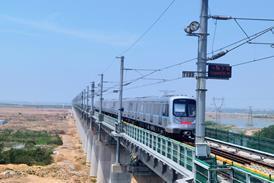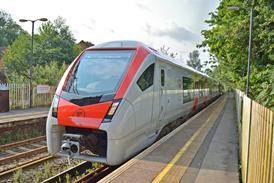PUBLIC HEARINGS called this month by the Productivity Commission will seek views on the way railway reform is being handled in Australia. A draft report was published by the Commission on March 30, and its final report is due in August. Despite huge changes in the way government owned railways are structured, the Commission believes ’progress is slow and problems remain’, although ’there is now greater competition between railways, more private sector participation, lower freight rates and significantly higher productivity.
The Commission looked to the US and Canada as benchmarks against which to judge the way the five principal government railways should perform their primary task of moving freight. It found that in 1997 ’total factor productivity’ was about 50% and 35% below US and Canadian railways, though US figures exclude some 500 regional and short lines whose operations perhaps match the Australian situation better than the Class I giants.
Even so, this represents a massive improvement on 1990. Since then, TFP has been growing at 8% annually in Australia, 4% in Canada and only 3% in the US. Australia is catching up fast from a low base. With privatisation of freight in Victoria and Western Australia due this year, National Rail Corp not far away and maybe NSW’s FreightCorp to follow, the catch-up could continue for a while yet.
Australian freight shippers paid 96% and 74% more per net tonne-km in 1997 than their US and Canadian counterparts. The Commission rightly points to the scale of operations in the US where net tonne-km is 35 times greater - if massive tonnages moved by mining companies in Western Australia are ignored. Even so, it notes that over the 1990-97 period rates declined faster in the US (25%) and Canada (30%) than the 20% achieved in Australia.
Presiding Commissioner Helen Owens says the reforms must continue. ’A greater commercial focus and a freer operating environment are needed to improve the competitiveness of railways with road transport. They would also generate more investment within the industry.’ She wants the federal government to push through reform of safety and technical standards which seriously hamper interstate operations, to address the scandal of rail paying for road maintenance through diesel fuel tax (RG 3.99 p127), and to ’establish an inquiry into the provision, funding and pricing of roads in Australia.’
- A draft report on private sector involvement in rail freight services was presented to Australian Prime Minister John Howard last month. Prepared by the Smorgon Committee which was appointed last August, the report suggests that all Australia’s rail freight operations should be privatised. Among the 30 recommendations are calls for a national rail authority, and for government spending on track upgrading to be accelerated and increased from A$250m to A$720m.




















